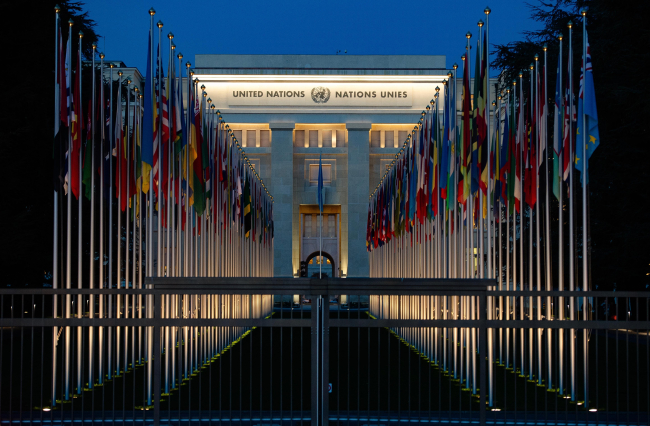From nonproliferation to strategic competition: US export controls and China

Technological competition is at the heart of the renewed great-power competition that has characterized relations between the USA and China since the 2010s. The role of technological innovation in the evolution of power relations is already recognized in the literature of international relations. However, developments in US technology policy under the last two administrations raise the reverse question: how does the perception of changing power relations (in this case, Chinese technological catch-up perceived as a threat to US leadership) transform policies granting or denying access to technological innovation?

This study sheds light on the transformation in the American conception of export controls: mainly conceived in the post-Cold War era as a law enforcement and nonproliferation tool, it has become a strategic instrument to restrict technology transfers to the People’s Republic of China. Using a Foreign Policy Analysis approach based on the analysis of legal texts, speeches, and interviews with the political actors involved, this article examines the policy process, leading to this fundamental change in US export control policy. As this study demonstrates, this change reflects a new interpretation of the link between economic and security interests, as well as the expansion of the perimeter of American national security.
This article was published in International Politics.
Visit Springer Nature's website to access Mathilde Velliet's article, which is only available in English.
Mathilde Velliet is a research fellow at Ifri's Center for Geopolitics of Technology.

Available in:
Themes and regions
Share
Related centers and programs
Discover our other research centers and programsFind out more
Discover all our analysesRegulatory Dynamics and Tensions in the Space Sector: Towards and Americanization of Space Law?
The development of space law has gradually evolved from a top-down normative dynamic dominated by the founding impetus of the UN to a bottom-up normativity driven by national and industrial practices. This evolution is now accompanied by growing normative competition, raising the risk of an Americanization of space law and prompting the question of a European response.
The Sustainability of Space Operations: An Opportunity for European Leadership?
As space becomes a key arena for power projection strategies, while facing growth and diversification of orbital activities, the concept of “space sustainability” is emerging as a new framework of analysis for space governance.
The “Huawei Saga” in Europe Revisited: German Lessons for the Rollout of 6G
While the European Union attempted to coordinate a collective response through its 5G Toolbox in Europe’s 5G infrastructure, member states diverged significantly in balancing political, economic, and technological considerations. Germany, despite its economic ties to China and status as Europe’s largest telecom market, only reached a tentative agreement in July 2024—one that appears largely symbolic.
European Startups and Generative AI: Overcoming Big Tech Dominance
Europe is at a crossroads. Faced with the domination of American Big Tech across the entire generative Artificial Intelligence (AI) value chain, from foundation models to cloud infrastructure, distribution channels, and open source, it risks long-term technological and economic decline. Yet generative AI also represents a major opportunity for economic transformation, with a potential value estimated at 1.5 times France’s gross domestic product (GDP). To turn it into a driver of renewal, Europe must move beyond the illusion of total technological independence and instead build an ecosystem that leverages Big Tech resources while strengthening its own innovation capabilities.












